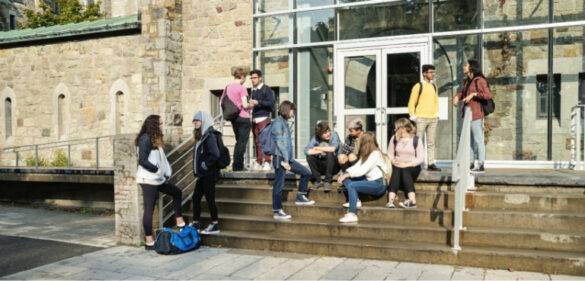Campus Civility Project: Emotionally Intelligent Conversations
For more articles like this, check out an Academic Leader subscription or a free three-week trial! Because divisive national political rhetoric has spilled over into higher education, Wake Technical Community College launched the Campus Civility Project: Emotionally Intelligent Conversations in 2017. This project was part of a Campus Compact Fund for Positive...
Emotional, Physical, Financial, and Mental Health Effects of Noncollegial Colleagues
Tracy Ford has just completed her PhD and is searching for a full-time position in a university. She is a much sought-after young academic as she has published six articles and presented at a national conference. Also, she has experience in teaching in an adjunct position, and her evaluations were...
Collective Terms Perpetuate Stereotypes and Biases: Change Begins with Leadership
It was a sweltering July morning when an email from one of my librarians arrived in my inbox, its subject line proclaiming, “THE LIBRARIANS ARE HOT!” I had recently taken over management of library faculty and staff, and this was my first crisis. The library’s air conditioning unit had failed,...
The Departmental Gestalt: Fostering Student Major Identity and Program Pride
This article first appeared in Academic Leader on September 4, 2020 © Magna Publications. All rights reserved. Like many others in the trenches of academia, we’ve chaired, taught, and advised in a small, understaffed, underfunded, and oversubscribed program. While other understaffed and oversubscribed departments limped along, ours notably thrived, resulting in strong...
Establishing Effective Relationships Between Faculty and Instructional Designers
Faculty routinely engage the assistance of instructional designers when designing and developing courses. To build trust and respect between faculty and instructional designers, each has to realize that they are working toward a common goal—providing students with active learning experiences that facilitate deep learning. This relationship is important as each brings...
The Department Chair as the Engine of Diversity Transformation
The academic department chair is positioned to be the engine of change in diversity progress in higher education today. Serving at the core of the academic enterprise, chairs work collaboratively with faculty to empower students with the needed skills, knowledge, and competencies to participate as leaders and citizens in a...
Take a Vacation—Please!
Although workshops on academic leadership frequently devote sessions to the topic of “work-life balance,” that phrase is really misleading. It seems to imply that we’re either working or living but never doing both at the same time. However, this is a false dichotomy for most administrators. We’re obviously living while...
Why Getting It Done Is Often Better Than Getting It Perfect
Although the remark has been attributed to lots of different people, it was Voltaire who first observed (in his Dictionnaire Philosophique, 1764) that “the perfect is the enemy of the good” (Le mieux est l’ennemi du bien). It has become such a common saying that we recite it almost without thinking....
Can Innovation Be Taught?
As budgets tighten at colleges and universities, academic leaders are repeatedly urged to be more entrepreneurial in their approaches. “It’s time to think outside the box,” we’re told. “Be creative. Be daring. Be innovative.” But what do you do if you’re not a naturally innovative person? Or how can you...
Being Intentionally Collaborative: Making the First Move
In a recent job interview for an associate vice president position, a prospective candidate was asked if they had any questions for the search committee. The person asked, “Is this a collaborative environment?” After a pregnant pause that seemed to give birth to triplets, the general response was that the...












